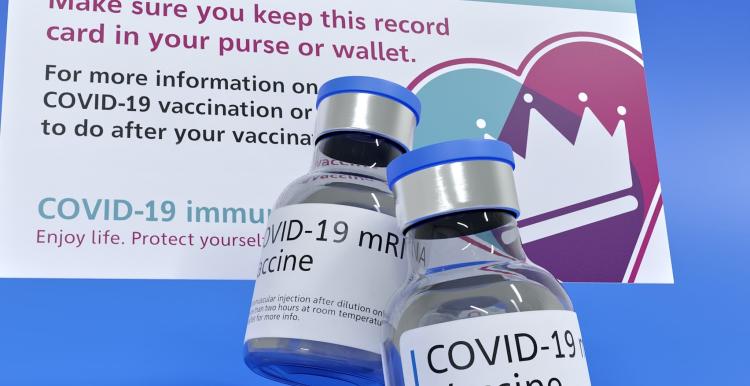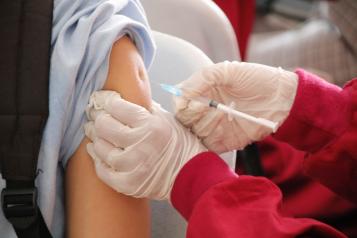COVID Autumn 2023 boosters are underway: all you need to know
Millions of eligible people will now be offered a COVID vaccine from 11 September, in line with the latest expert guidance on the new COVID variant.

The adult COVID and flu vaccination programmes are now underway to maximise protection for residents over the coming winter months.
Starting from 11 September, those most at risk, including adult care home residents, will be vaccinated.
Am I eligible for an autumn booster?
If you fit into any of these groups, you can get your autumn COVID booster:
- Residents in care homes for older adults
- All adults aged 65 years and over
- People aged 6 months to 64 years in a clinical risk group.
- Frontline health and social care workers.
- People aged 12 to 64 years who are living with someone who is immunosuppressed.
- People aged 16 to 64 years who are carers, and staff working in care homes for older adults.
When is the booster available and how do I book an appointment?
- Vaccinations will begin on 11 September for those most at risk, including adult care home residents and people who are immunosuppressed.
- From 18 September, the NHS will start to invite people in priority order of risk and those eligible will be able to book an appointment on the National Booking Service.
Who counts as being a 'high risk or immunosuppressed' when it comes to COVID vaccinations?
If you have any of these conditions:
- Chronic respiratory disease
- Chronic kidney disease
- Chronic neurological disease, such as stroke and individuals with cerebral palsy, profound multiple learning disabilities, Down’s syndrome, multiple sclerosis, epilepsy, dementia, Parkinson’s disease, motor neurone disease and related or similar conditions.
- Diabetes
- Those with immunosuppression
- Asplenia or dysfunction of the spleen
- Morbid obesity
- Severe mental illness
- Younger adults in long-stay nursing and residential care settings
- Pregnant women
Clinical risk groups for those aged under 16 years include:
- Chronic respiratory disease
- Chronic heart conditions
- Chronic conditions of the kidney, liver or digestive system
- Chronic neurological disease
- Endocrine disorders
- Immunosuppression
- Asplenia or dysfunction of the spleen
- Serious genetic abnormalities that affect a number of systems
- Pregnancy
Why should I get an autumn booster?
- Vaccines help to protect against severe illness, hospitalisations and deaths from COVID.
- People who received an autumn booster vaccine last year were around 53% less likely to go to the hospital with COVID. in the two to four weeks after getting vaccinated, compared to those who didn't get a booster.
- Last year's autumn booster programme saw almost 84% of over-80s vaccinated and more than 73% of 65-70-year-olds, protecting the most vulnerable and helping us to live with COVID.
Find out more on the Government website.
Image credit: Adam Gethin, Unsplash

